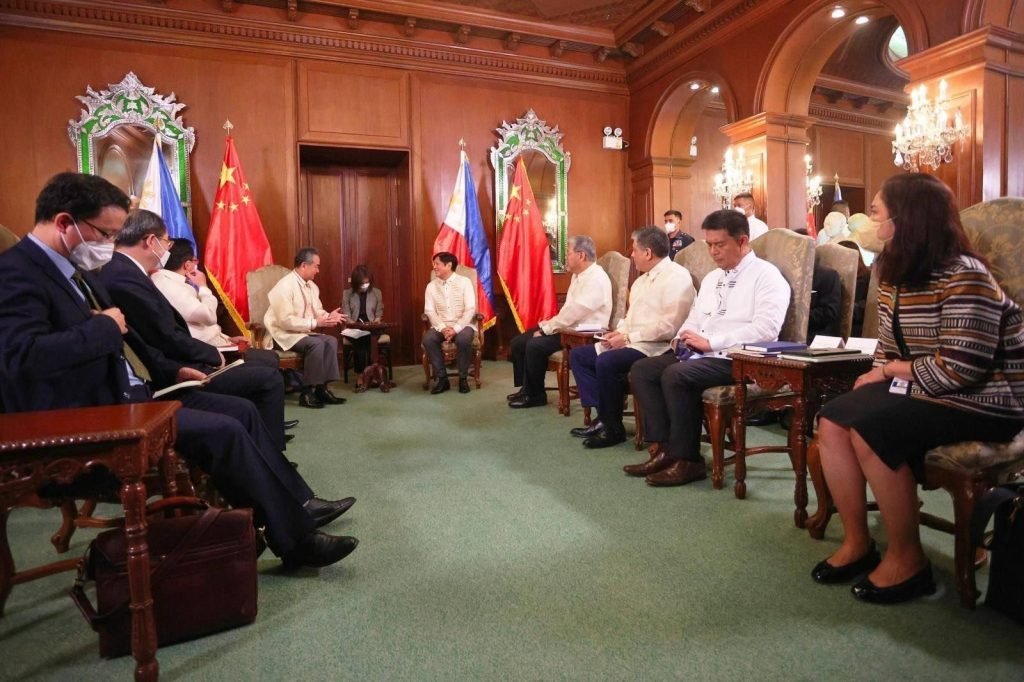Manila, 7 July 2022 (TDI): The Chinese State Councilor and Foreign Minister Wang Yi is on a visit to the Philippines. He held a meeting with the newly-elected Philippine President Ferdinand Marcos Jr.
In a friendly exchange, the two sides discussed the old friendship between the two states, the trade partnership, and the development partnership between China and the Philippines.
Chinese Foreign Minister told National Security Advisor Clarita Carlos that China does not follow the traditional path of colonization and is committed to fostering peaceful development with the help of win-win cooperation.
Previously, Chinese President Xi Jinping held a telephonic conversation with Ferdinand Marcos Jr. after his election win.
South China Sea Dispute:
The Philippines is an essential stakeholder in the South China Sea Dispute. Meeting with the Philippine President, Foreign Minister Wang Yi opined that the friendship between the two nations is millennia old. Therefore, he added, no dispute should alone define China-Philippines relations.
The Philippine President also expressed positivity vis-a-vis ties with China.
He said that China is the largest trading partner and the most important development partner of the Philippines.
He expressed hope for the continuity of bilateral cooperation in several areas, including culture, education, trade, and politics.
Furthermore, the two sides agreed to enter the “golden age” of bilateral relations. The Philippine President Marcos also reiterated that the South China Sea dispute must not hinder bilateral cooperation.
The Philippine President Marcos said in a tweet,
I am grateful to Minister Wang Yi for extending the message of congratulations and support from President Xi Jinping.
We also discussed agriculture, infrastructure, energy, and our commitment to maintaining the strong relationship between our peoples in the coming years. pic.twitter.com/dLV66tdHCU
— Bongbong Marcos (@bongbongmarcos) July 6, 2022
China’s ambassador to Manila, Huang Xilian, described Wang’s visit as “fruitful” and “inspiring.”
“I hope the visit deepens China-Philippines relations and fortifies our practical cooperation in many avenues, such as the Belt and Road Initiative and the comprehensive infrastructure plan,” said Huang.
Hassan Ahmed is an IR graduate with research and writing experience in IR theory and great power politics. He previously worked as a research fellow at IPDS and wrote for The Diplomatic Insight. His published works include "Reimagining US-Pakistan Ties" and a Book Review of "War Without Winners."
- Hassan Ahmed
- Hassan Ahmed
















